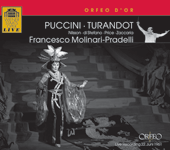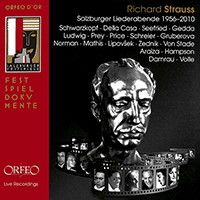Leontyne Price
Leontyne (Mary Violet Leontine) Price’s father was a carpenter and her mother a midwife, as well as an active singer in a church choir. When she was fourteen, she was taken to hear Marian Anderson, an experience which she described as inspirational. She soon demonstrated exceptional musical talent, singing and playing the piano at local weddings and funerals, and gave her first recital in December 1947. After studying at Wilberforce College (now Central State University) in Ohio, Price enrolled at the Juilliard School of Music in New York, aided by a benefit concert given for her by Paul Robeson and by support from a wealthy Laurel family. In New York she studied singing with Florence Page Kimball and changed the spelling of her name to Leontyne.
Accepted by the Juilliard Opera Workshop, Price made her first operatic performance with it in 1952 as Mistress Ford / Falstaff, impressing the composer Virgil Thomson sufficiently to be immediately hired by him for a revival of his opera Four Saints in Three Acts in a short run on Broadway followed by performances in Paris. Shortly afterwards she was cast as Bess in a production of Gershwin’s Porgy and Bess that toured to several major US and European cities, sponsored by the US State Department. In 1955 she first sang with the NBC Opera Theatre, as Tosca, and this was soon followed by telecasts of Die Zauberflöte, Dialogues des Carmélites and Don Giovanni. Price was also very active as a recitalist, undertaking concert tours of America during the 1955−1956, 1956–1957 and 1957–1958 seasons, as well as of India in 1956 and Australia in 1957. During the autumn of 1957 she sang Madame Lidoine / Dialogues des Carmélites with the San Francisco Opera and at short notice substituted for Antonietta Stella as Aida.
Already heard by Herbert von Karajan when he was visiting New York in March 1955, she made her debut at the Vienna State Opera in May 1958 as Aida with Karajan conducting. In the same role she quickly appeared at the Royal Opera House, London (replacing Anita Cerquetti) and at the Verona Arena. During 1959 she returned to Vienna to sing both Aida and Pamina / Die Zauberflöte and made her Salzburg Festival debut in Beethoven’s Missa Solemnis with Karajan conducting. She first appeared at La Scala, Milan in the spring of 1960 (again, as Aida).
The manager of the Metropolitan Opera, Rudolf Bing, having heard Price and Franco Corelli sing in Il trovatore at Verona in 1959, invited her to sing several roles at the Met, starting with Leonora / Il trovatore opposite Corelli at the beginning of 1961. Writing in the New York Times the critic Harold Schonberg described her voice as ‘warm and luscious’. She rapidly followed this great success with appearances as Cio-Cio San / Madama Butterfly, Donna Anna / Don Giovanni and Liù / Turandot. At the Met Price opened the following season as Minnie / La fanciulla del West and in the spring of 1962 sang her first staged Tosca there. During the following five seasons she sang seven more roles at the Met: Elvira / Ernani, Pamina, Fiordiligi / Così fan tutte, Tatyana / Eugene Onegin, Cleopatra / Antony and Cleopatra, Amelia / Un ballo in maschera and Leonora / La forza del destino; but as the 1960s drew to a close she gradually reduced her operatic appearances in favour of concerts (she was a leading exponent of the soprano part in Verdi’s Requiem) and recitals.
In the early 1970s Price returned to Covent Garden (Il trovatore, 1970 and Aida, 1973) and sang with the Hamburg State Opera, but after 1970 undertook only three new roles: Giorgetta / Il tabarro (San Francisco) and the title roles in Manon Lescaut (1975) and Ariadne auf Naxos (1977) (both New York and San Francisco). She did however star in new productions at the Met of Madama Butterfly (1973) and Aida (1976), and returned to Vienna to sing in Il trovatore with Karajan and Pavarotti in 1977.
Price’s farewell to the Met was with Aida during January 1985 in a televised performance which Time magazine described as ‘vocally stunning’. She continued to be active in recital, offering programmes that ranged from Handel through French and German songs to modern American compositions and spirituals. She gave her last recital at Chapel Hill, North Carolina, in November 1997.
The possessor of a beautiful, lustrous voice ideally suited to the heroines of middle-period Verdi operas, Price made a large number of recordings, predominantly for the RCA-Victor label. In his book The Grand Tradition (1974), the British critic John Steane wrote: ‘…one might conclude from recordings that (Price) is the best interpreter of Verdi of the century.’
© Naxos Rights International Ltd. — David Patmore (A–Z of Singers, Naxos 8.558097-100).


















